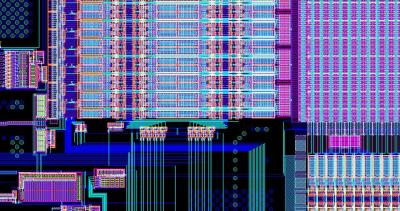EE4610 Digital IC design
This course will present a broad yet thorough overview of the subject of digital VLSI design, spanning both circuit and system abstractions. This complete picture is the only way to make the right tradeoffs, find the most suitable optimizations and the best implementation strategies for very large scale integrated circuits in standard deep-submicron CMOS technologies.
After an introduction to technology, devices and interconnect, combinational logic gates and sequential elements are studied. This is followed by system level perspectives of interconnect issues, timing issues and the design of macro blocks. At each level, the opportunities and limitations of the physical implementation are considered for finding better solutions and trade-offs. This includes the consequences of the analog behavior of digital systems with respect to e.g. cross-talk noise and signal waveforms, that generally tend to become more influential with each new technology generation.
Study Goals
Be able to analyze, design, and verify a VLSI component with full comprehension of how its performance, power dissipation, size and reliability relates to the physical implementation. Be able to use this knowledge to make suitable tradeoffs and implementation choices. Be able to manage the complexity of scale of a VLSI system as well as the complexity of behavior of its individual components.
Teachers
dr. Sijun Du
Power management integrated circuit (PMIC), energy harvesting, wireless power transfer, DC/DC converters.
dr.ir. Nick van der Meijs (SPS)
VLSI design verification
Last modified: 2023-11-04

Details
| Credits: | 3 EC |
|---|---|
| Period: | 0/4/0/0 |
| Contact: | Sijun Du |